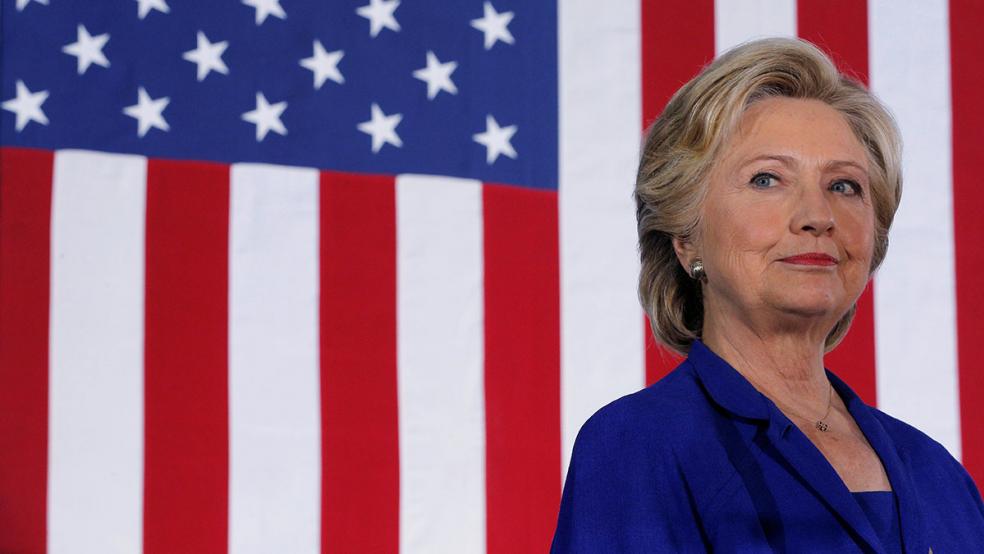It’s hard to know exactly what impact the FBI’s announcement on Sunday that it will not recommend criminal charges against Hillary Clinton because of her private email server will have on tomorrow’s presidential election. But the impression it left is that it’s more likely that she’ll win the presidency, and that appears to be making investors happy.
Shortly after a letter from FBI Director James Comey was released on Sunday saying that a new cache of emails (most of which were duplicates of emails already reviewed) had revealed no evidence of criminal wrongdoing, economist David Rothschild, who monitors political betting markets, noted an uptick in the price of futures contracts that pay out if Clinton wins.
Related: Has Trump Put Michigan and Minnesota in Play? Probably Not
By Monday morning, Rothschild’s aggregation of betting market data was showing an 89 percent chance of a Clinton victory over Republican Donald Trump. The New York Times forecast held steady at an 84 percent chance of a Clinton victory. The Princeton Election Consortium effectively declared the race over, saying that it gives Clinton a greater than 99% chance of victory. Even fivethirtyeight.com, which has been much more cautious about writing Trump off, boosted Clinton a few points, to 67.7 percent chance of victory.
The reaction in global markets plainly suggested that the increased likelihood of a Clinton victory was seen as good news. Stock futures started trending upward after the Comey release Sunday, and all the major US stock indices opened sharply higher Monday morning, and continued climbing through morning. That followed nearly two weeks of day-on-day declines through last Friday. The three major indices—the Dow, the Nasdaq, and the S&P 500—all ended up more 2 percent on Monday.
By contrast, the price of gold, seen as a hedge against economic uncertainty, fell on Monday morning.
International markets also seemed to react favorably to the news, with all major stock exchanges showing positive movement on Monday. In Mexico, a frequent target of Trump’s over issues related to trade and immigration, the main stock index was up more than 2.6 percent by late morning, and the Mexican peso had gained more than 2 percent against the US dollar in foreign exchange markets.
Related: FBI’s Comey: Never Mind About That Clinton Email Bombshell
There is already considerable evidence, based on futures movement observed during the presidential debates, that investors are more comfortable with Hillary Clinton in the Oval Office than they are with Trump. Economists Justin Wolfers of the University of Michigan and Eric Zitzewitz of Dartmouth studied the real-time reactions of investors to debates as the apparent advantage shifted from one candidate to the other.
“Given the magnitude of the price movements,” they concluded, “we estimate that market participants believe that a Trump victory would reduce the value of the S&P 500, the UK, and Asian stock markets by 10-15%, would reduce the oil price by $4, would lead to a 25% decline in the Mexican Peso, and would significantly increase expected future stock market volatility.”
Of course, even as the markets seemed to react with optimism to the increased chances of a Clinton presidency (or, alternately, the lower odds of a Trump on) there were those arguing that the prolonged drop in the markets in the two weeks prior to the election -- a time when many Americans were taking the opportunity to vote early -- actually favored Donald Trump.
In an appearance on CNBC Monday morning, Tom McClellan, editor of the McClellan Market Report, said that two weeks of market decline made “a powerful statement that people are really in a bad mood. And when they get in a bad mood they don’t like the incumbent or the incumbent party. That just hasn’t shown up yet in the poll numbers.”





